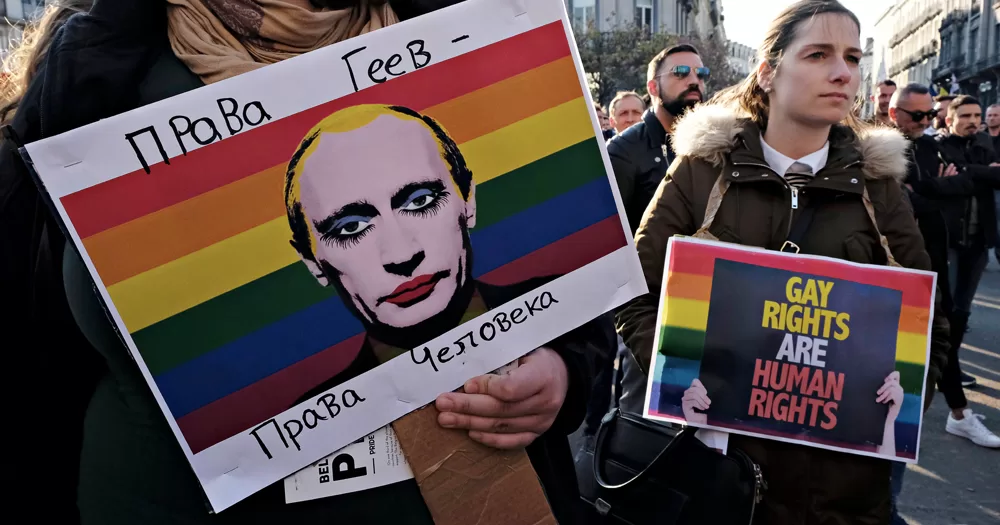After the Supreme Court in Russia banned the “international LGBTQ+ movement” last November, the first convictions have started in recent days. A woman was jailed for a total of five days on charges of displaying “extremist symbols” in the form of rainbow earrings, and a man was fined for sharing a picture of a Pride flag on social media.
On November 30 last year, the Russian Supreme Court passed a motion to label the international LGBTQ+ movement an “extremist organisation”. After the decision, activists noted that the motion was lodged against a movement that is not an official entity and that, because of its broad and vague definition, it could be used to crack down on all LGBTQ+ individuals and groups deemed to be part of it by authorities.
Now, courts in Russia have started to hand out the first convictions under the ban on the LGBTQ+ movement. As reported by a Russian news outlet, on January 29, a woman in the Russian city of Nizhny Novgorod was approached by a group of people who demanded that she remove her rainbow earrings because they were “banned symbols”.
A video of the interaction circulated on local Telegram channels and the woman was later called into a branch of Russia’s Anti-Extremism Center. She was then arrested for “the symbol of an extremist organization” and sentenced to five days in jail. In the sentencing, the judge explicitly cited the Supreme Court’s ruling that deemed the LGBTQ+ movement an “extremist organisation”.
According to the organisation Aegis, which commented on the video that circulated online, this conviction points to an interpretation of the ban that is so broad that it could encompass even indirect connections to LGBTQ+ rights and symbols.
Speaking about the case, Russian lawmaker Alexander Khinshtein, who co-authored the country’s anti-LGBTQ+ propaganda law, said the motion passed by the Supreme Court should not ban “classic” rainbows and said he found the sentencing of the woman “very strange”, claiming it should be reversed.
This was not the only conviction handed out based on the ban, as on February 1, a court in Volgograd Oblast found a man who posted a Pride flag online guilty of “displaying the symbols of an extremist organisation” and ordered him to pay a fine of 1,000 rubles (€10.23).
© 2024 GCN (Gay Community News). All rights reserved.
Support GCN
GCN is a free, vital resource for Ireland’s LGBTQ+ community since 1988.
GCN is a trading name of National LGBT Federation CLG, a registered charity - Charity Number: 20034580.
GCN relies on the generous support of the community and allies to sustain the crucial work that we do. Producing GCN is costly, and, in an industry which has been hugely impacted by rising costs, we need your support to help sustain and grow this vital resource.
Supporting GCN for as little as €1.99 per month will help us continue our work as Ireland’s free, independent LGBTQ+ media.

comments. Please sign in to comment.